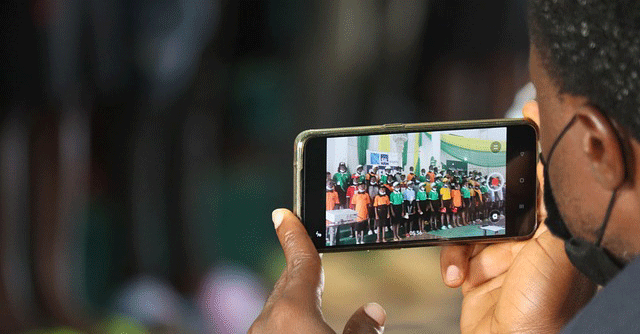
Less than 14% of world’s major tech companies deliver on digital inclusion: Report


Less than 14% businesses globally are enabling greater access to digital technologies, improving digital skills, reducing usage risks, and ensuring inclusive and ethical innovation, according to a new study published on Monday.
The ‘Digital Inclusion Benchmark’ that tracks how companies are helping to advance a more inclusive digital economy and society, by non-profit research group World Benchmarking Alliance (WBA) finds that the digital divide is widening.
The research, released during the World Summit on the Information Society Forum, Geneva, which assessed 200 tech companies from around the world found that only 27 achieved a score of at least 50% on key criteria including digital access and inclusion.

Since the first Digital Inclusion Benchmark was published three years ago, there are clear signs that holding companies accountable through benchmarking and stakeholder influence — alongside practical support — is helping to drive progress.
Of the 150 companies included in previous benchmark iterations who were also assessed this year, the average score increased by 6.8%. Yet, Pauliina Murphy, World Benchmarking Alliance’s Engagement & Communications Director observed that the worrying gaps in company action and accountability continue to exist with people missing out on the positive power of digital access.
“This includes people in developing countries, individuals on low incomes, people with disabilities, ethnic minorities, and rural communities,” she said. While 95% of the world has the theoretical potential to access the internet, almost half the global population is offline due to limited digital skills or affordability issues.

“As the global community increasingly relies on digital access for work, education, health and finances, the consequences of digital exclusion are starker than ever. The digital divide is a huge problem, and we need tech companies around the world to step up to address it,” said Murphy, adding that technology companies have the potential to make a profound positive difference – from helping communities to connect and cooperate to ensuring safe access – and we need every business to act on this responsibility.
“With the pace of change across the sector currently too slow, policymakers and investors must help to raise the bar,” she added.
The best performing companies across the benchmark were Telefonica, Orange, Deutsche Telekom, Apple and Microsoft. Examples of their leading practices include running skills programs for women and girls, and making clear commitments to data privacy and child protection, the study said.

Across all companies, Chinese multinational e-commerce firm Alibaba showed the highest increase in score to the tune of 150% increase by engaging to provide online and offline classes on digital literacy for the elderly in China, and a partnership with an African non-profit to teach computer programming to 1 million women across the globe.
The report, however, suggests that some companies are still disguising the truth behind their data. For example, many companies use vague text to describe their commitment to cybersecurity, AI ethics, child online safety and data privacy.
Highlighting the many challenges of the digital sector including children’s digital rights, ethical AI and data privacy, the report said that as the sector is largely unregulated, high-level social commitments to human rights, decent work and acting ethically are critical to hold companies accountable and increase progress.

Not just the WBA report, a report from the World Economic Forum (WEF) published on May 2022 highlighted a significant proportion of the world’s population is cut off from the digital economy. This problem is three-fold, it said: “it’s a lack of accessibility, affordability and/or usability”.
Despite the strong growth in internet use over the past two years, the United Nations’ specialised agency for information and communication technologies, the International Telecommunication Union, recently found that 37% of the world's population — or 2.9 billion people — have still never used the internet. Only a third of the population in Africa is using the internet, as against in Europe, where 90% of people are online.
Even in India, there is a wide digital divide, shows study. An Oxfam India’s report released in December 2022 titled: ‘India Inequality Report 2022: Digital Divide’ also stated that the reach of digital technologies remains limited to largely male, urban, upper-upper-caste, and upper-class households and businesses. The percentage of men owning phones is as high as 61% while only 31% of the women owned mobile phones in 2021.

Digital technologies were supposed to make public services and schemes more accessible. But the Oxfam India showed that isn’t happening. Moreover, digital technologies are accessible only to the rich and privileged businesses.
The report also showed that a person with a postgraduate or higher 60% more likely to have a phone than a person with no education. This is worrying because this digital divide can further deepen the existing socio-economic inequalities in the country.
Nearly nine out of 10 companies in India are facing hiring issues owing to the increasing technology skills gap, according to a new study published on Wednesday.

The study conducted by cloud services provider Amazon Web Services (AWS) launched jointly with advisory firm Gallup that polled more than 2,000 professionals in India across industries further said that those who use advanced digital skills (including cloud, AI/ML, software development) can contribute an estimated $507.9 billion (₹10.9 trillion) to India’s annual gross domestic product (GDP).
